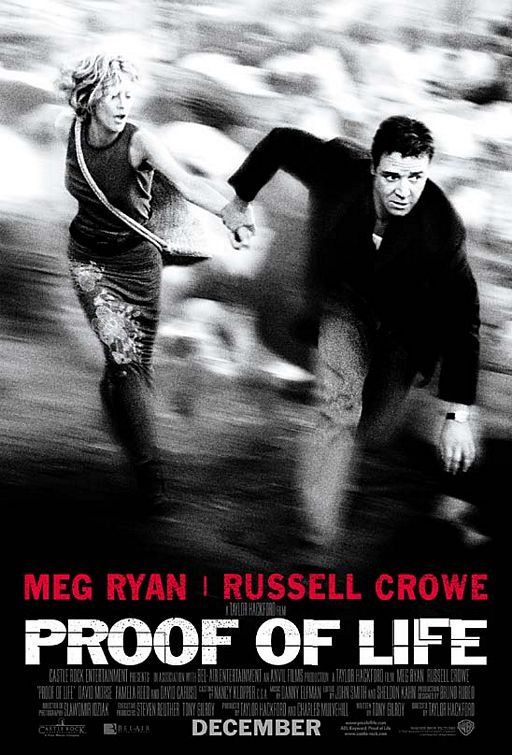“Adventures in the Ransom Trade”

| None | Light | Moderate | Heavy | |
|---|---|---|---|---|
| Language | ||||
| Violence | ||||
| Sex | ||||
| Nudity |
What You Need To Know:
Peter’s adventure with his captors, Terry’s hostage negotiations and the final exciting rescue are far more gripping than the romantic story between Alice and the two men. These action parts of the movie are better written and are aided immensely by the performances of Morse and Crowe. Lots of strong foul language and some other objectionable elements spoil the movie’s moral worldview, however.
Content:
(BB, CC, AB, PC, ACap, LLL, VVV, N, A, DD, M) Moral worldview wherein a brave Christian missionary plays a key role in helping man rescue woman’s kidnapped husband, marred by adulterous feelings on the part of the husband’s would-be rescuer, by some politically-correct, anti-capitalist feelings against large oil companies & by lots of strong foul language; 97 obscenities, 12 strong profanities, 9 mild profanities, & an obscene gesture; strong action violence with some bloody moments, including explosions, gunfire, tank fires at helicopter, Marxist revolutionaries turned drug dealers murder & kidnap people, stick pierces man’s foot, stick pierces man’s leg, kidnapper hits bottoms of man’s injured foot, & men shot dead; no sex, but man kisses married woman; upper male nudity; alcohol use; much smoking, drug dealer minion smokes cocaine & evil drug dealers hold people for ransom; and, lying, kidnapping, married couple argues, & company bureaucrat cuts costs by canceling important insurance for employees but company abandons employee anyway.
More Detail:
The story of PROOF OF LIFE tells what happens when American-born engineer, Peter Bowman (played by David Morse of THE GREEN MILE), is kidnapped by Marxist guerrillas and drug dealers in a fictional South American country in the Andes called Tecala. The kidnappers demand $3 million for his safe return, but Peter’s employer is on the verge of bankruptcy and secretly cancelled its kidnapping insurance policy. Peter’s wife, Alice, played by Meg Ryan, must deal with the problem on her own. She retains the services of professional hostage negotiator, Terry Thorne (Russell Crowe), an Australian-born former officer in the special forces unit of the British Army.
Terry’s negotiations evolve into a lengthy haggling situation. During the negotiations, Peter suffers terrible physical and mental hardships while being moved from one camp in the mountains to another camp in the jungle. By rediscovering his love for Alice and focusing on that, he sustains his will to survive, with help from a kidnapped Christian missionary whom the Marxists think is crazy. The ordeal, however, establishes an emotional bond between Terry and Alice, a bond that may end up betraying Peter’s renewed love.
The character development between Peter and Alice and Alice and Terry sounds more developed in this description than it really is. Part of the problem is that, before he’s kidnapped, Peter and Alice have a shrill argument about his dam-building job in Tecala and her lack of commitment to it. Apparently, she is still suffering some kind of depression from a miscarriage several months ago. The movie, however, just lets this fact lay there, and the heated argument between the couple is embarrassing rather than gripping or insightful. The whole thing just becomes an excuse to lead viewers to think that Alice may indeed run off with Terry once he rescues her husband.
Peter’s adventure in the wilds of South America, Terry’s hostage negotiations and the final exciting rescue are far more gripping than the romantic story. These parts of the movie are better written, and they are aided immensely by the performances of Morse and especially Crowe. Playing a key role in these parts is a Christian missionary (Gottfried John) who helps Peter during his ordeal. The missionary also ends up giving Terry an important piece of information that can help rescue Peter. It was a great and welcome surprise to see such a positive religious character in this movie. In fact, at one point in the story, Terry picks up a special message from the kidnappers under an altar in a Roman Catholic Church. Regrettably, however, PROOF OF LIFE doesn’t do anything more with these Christian elements, which could have been used to present the Gospel in a metaphorical way, or even in a literal sense. After all, the idea of a ransom is also a theme behind the sacrificial atonement of Jesus Christ.
An adulterous pass that Terry finally makes toward Alice at an important point, the doubt over Alice and Peter’s marriage, and the movie’s abundance of strong foul language spoil the movie’s moral worldview and nearly its positive ending. However, although there are some politically-correct, anti-capitalist feelings and implications in the movie, it clearly shows that the Marxist kidnappers are destroying their country by engaging in violence and by using drug sales to finance their operations. Defeating these evil people becomes a great crusade for goodness in PROOF OF LIFE, despite the movie’s moral and theological shortcomings.


 - Content:
- Content: 






